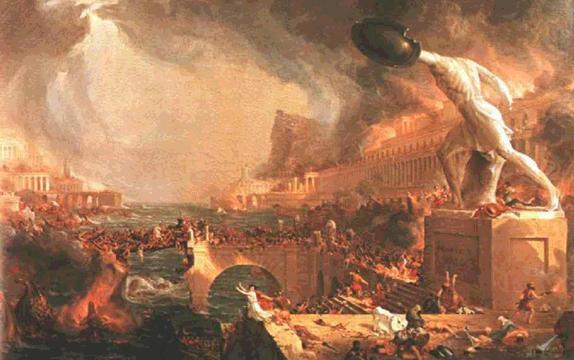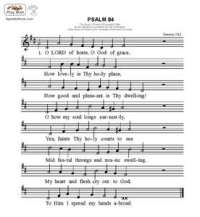"Sit at My Right Hand" -- A Sermon on Psalm 110
 Sunday, June 22, 2014 at 03:49PM
Sunday, June 22, 2014 at 03:49PM 
Here's the audio from this Morning's sermon: Click Here
Living in Light of Two Ages
____________________________
 Sunday, June 22, 2014 at 03:49PM
Sunday, June 22, 2014 at 03:49PM 
Here's the audio from this Morning's sermon: Click Here
 Sunday, June 22, 2014 at 03:42PM
Sunday, June 22, 2014 at 03:42PM  Youth Ministry And Youth Culture:
Youth Ministry And Youth Culture:
What are the assumptions about “youth” in our time, and how do those assumptions differ from what we find in Scripture? How do technology and social media ghettoize today’s kids? In a time of perpetual adolescence, how should we form our children to become mature adults? As we conclude our series on Youth Ministry, Mike Horton will be discussing these important questions with T. David Gordon, author of Why Johnny Can’t Preach.
 Friday, June 20, 2014 at 07:35AM
Friday, June 20, 2014 at 07:35AM No, I didn't go to Woodstock. But I did see Canned Heat at the Santa Monica Civic Auditorium in 1970--the first of many concerts I attended throughout the years. I enjoyed the "Bear" and hippies who could "boogie." Too bad the drug use that went with hippie culture killed two of these guys--the Bear (Bob Hite) and the lead guitar player (Alan Wilson).
I've always wondered how much in chiropractic bills the bass player ran-up over the years.
 Thursday, June 19, 2014 at 03:36PM
Thursday, June 19, 2014 at 03:36PM 
(Published here with the kind permission of Modern Reformation Magazine, Issue: "Zion" Nov./Dec. 2009 Vol. 18 No. 6 Page numbers: 25-28)
When an alien spaceship destroyed the White House in the 1993 science fiction film Independence Day, I'm told that pre-9/11 moviegoers were not horrified at the possibility and that some even cheered (perhaps because they were a bit cynical about the current occupant of the Oval Office). As the world's lone superpower, we believe there is no nation on earth that would dare invade our nation and occupy our territory. While terrorists may do great damage and cause huge loss of life (as they have done), from a strategic point of view, a terrorist strike is of little consequence when it comes to challenging the military and economic might of the United States. At this point in our history, the fall of the American Republic to a foreign adversary (space aliens aside) is unthinkable.
Similarly, the citizens of the Roman Empire once thought themselves invincible and therefore safe from invasion. That is, until a Visigoth general named Alaric led an army of Germanic tribes over the Alps into northern Italy. The audacity of Alaric's incursion into the heartland of the Roman Empire enabled him to quickly occupy much of northern Italy, before laying siege to the rest of the Italian peninsula to the south. It was not long before Alaric's army was outside the gates of the City of Rome. When Alaric's forces broke through the Eternal City's remaining defenses on August 24, A.D. 410, his men ransacked and looted the symbolic heart of the empire. Ironically, this "barbarian" army included a significant number of Arian Christians who did little damage to the churches in the city and minimal harm to orthodox Christians.
Spared from invasion for eight hundred years, the unthinkable had now happened: Rome had been sacked. How on earth did an army of barbarians pull off the impossible? History had come to a dramatic turning point, and everyone living at the time seemed to know it, even if they were not sure what this meant for their collective futures.
If Edward Gibbon's assessment is correct, the myth of Roman invincibility obscured the moral and economic rot (what Gibbon calls the loss of "civic virtue") that had eaten away much of the foundation of Roman society. Rome's battle-hardened armies were off guarding the far-flung territories of the empire. The empire's treasury was empty; and a government, which prided itself on providing both bread and entertainment for its citizens, had nothing left to give them when the barbarians finally came. In the wake of the unthinkable, all that remained was the blame game-how and why did the invincible empire come to such an ignominious end?
The purpose of this essay is to briefly consider how the Fall of Rome provoked different reactions from two prominent church fathers living at the time: St. Jerome and St. Augustine. Their response to Rome's fall serves as an object lesson for many American Christians, who may see the health and success of the American Republic as in some way connected to the success and vitality of the kingdom of God.
To read the rest of this article, click here: Jerome, Augustine and the Fall of Rome
 Tuesday, June 17, 2014 at 10:13AM
Tuesday, June 17, 2014 at 10:13AM  A Sermon on Psalm 84
A Sermon on Psalm 84
In many places, the Bible speaks of the Christian life as a pilgrimage. Paul describes the Christian life in terms of enduring this present evil age as we make our way to the glorious inheritance which is ours in the age to come (cf. Galatians 1:4, Ephesians 1:21). When our Lord Jesus calls and instructs his disciples, he uses images drawn from Israel’s Exodus from Egypt, in which Jesus promises that he will lead us from the bondage of the guilt and power of sin, into the promised land, which is our Sabbath rest in the presence of God. The Bible also tells us that we are citizens of two kingdoms–the city of man, and the heavenly kingdom. We live in the one, all the while we long for the other. When U2's Bono cries out “I still haven’t found what I’m looking for,” there’s something in us cries out right along with him. As God’s people, we long for God’s presence and favor. This is our hope and the realization of our heavenly citizenship. This gives meaning and purpose to our lives as we make our way towards our goal and final destination. The problem isn’t that we haven’t found what we are looking for–we have. The problem is that we won’t fully receive what we have found until we come to the end of our pilgrimage, and we are not there yet. This is why the biblical writers can depict the struggles of the Christian life as a journey of sorts, as we make our way to that place for which we so eagerly long.
We continue our series on select Psalms and we now take up Psalm 84 which is attributed to the Sons of Korah. This Psalm is found in the third book of the Psalter and describes a pilgrimage to city of Jerusalem to worship YHWH in his temple. Although the pilgrim motif takes many different forms in the Scriptures, one way it is depicted is in terms of a longing for fellowship with the living God. In the Old Testament we find this longing expressed by many of Israel’s prophets. During that period of redemptive history from the time of Israel’s release from captivity in Egypt to the forty years of wandering throughout the wilderness of the Sinai, the people of God long to enter the promised land of Canaan–for them a new Eden of sorts. During the era of Joshua and the Judges, and then throughout the period of the united kingdom of Saul, David, and Solomon, God’s people desire to worship God in his temple, which they see as the visible sign of YHWH’s presence in the midst of his people. But once the kingdom is divided and Israel’s fortunes become bleak, God’s people find themselves longing for deliverance from the apostasy of the people, and from the wickedness of their religious leaders. The people of Israel long for deliverance from their enemies, and for that time when Israel will once again live in peace, safety, and prosperity. It is not accidental that messianic prophecy flourishes during this time, as God’s people increasingly long for their promised Messiah.
In the New Testament, this same longing for God’s presence and his blessing takes a strikingly different form. With the coming of Jesus Christ, the biblical focus shifts away from the letter of the law written on two stone tablets, to the Holy Spirit. The focus shifts away from a building where God resides (the temple) to the church in which his Spirit indwells. It shifts away from fruitful vineyards, fields, and orchards (material blessing) toward heavenly blessings, and it shifts away from dwelling in the land in peace and safety (Canaan), to union with Jesus of Nazareth (the true Israel). As Paul puts it in Galatians 4:4, now that the fullness of time has come, Jesus stepped out of the type and shadow of the Old Testament, fulfilling all of God’s promises. With the dawn of the messianic age, it is clear that Jesus is the true Israel and that we are his people. This is why in Matthew 12:6, Jesus says of himself, “I tell you, something greater than the temple is here.”
To read the rest of this sermon, Click Here
 Monday, June 16, 2014 at 10:25AM
Monday, June 16, 2014 at 10:25AM Sunday Morning (June 22): I am preaching on Psalm 110. Our Lord's Day worship service begins at 10:30 a.m.
Sunday Afternoon: I am continuing with my series on the Canons of Dort. We are covering the third/fourth head of doctrine, articles 10-11, which deal with why some believe the gospel and others do not. The catechism service begins @ 1:15 p.m.
Note: This is my last Sunday before my annual vacation/sabbatical. Revs. Compton and Coleman will be preaching in my absence.
Wednesday Night Bible Study: Resumes in September
Friday Night Academy: Lord willing, the Academy will resume in the fall of 2014. Our first class will be a reading/discussion format centering on Dr. Robert Godfrey's book, John Calvin: Pilgrim and Pastor (Crossway, 2009) and Mike Horton's book, Calvin on the Christian Life, (Crossway, 2014). If you plan on attending, you may want to start reading now.
Annual Christ Reformed Church Picnic: 6th Annual Christ Reformed Picnic. Come on out! We would love to meet you!
For more information and directions, check out the Christ Reformed website: Christ Reformed Church
 Sunday, June 15, 2014 at 05:18PM
Sunday, June 15, 2014 at 05:18PM 
Here's the audio from this morning's sermon: Click Here
 Sunday, June 15, 2014 at 05:05PM
Sunday, June 15, 2014 at 05:05PM  Taking Every Thought Captive
Taking Every Thought Captive
How are we to raise up the next generation of Christians to think seriously about their faith if they haven’t been taught how to think in the first place? How are we to keep our kids in the faith if they are constantly propagandized by the messages in movies, advertisements, or college classrooms? The apostle Paul calls us to “take every thought captive to the obedience of Christ,” but how are we to accomplish this task? Mike Horton will be discussing this important topic with Christopher Perrin, Aaron Larson, and Joelle Hodge, publishers of The Art of Argument by Classical Academic Press.
 Friday, June 13, 2014 at 07:51AM
Friday, June 13, 2014 at 07:51AM
I love old monster movies. My wife swears she's seen these critters in our kitchen and bathroom.
 Tuesday, June 10, 2014 at 03:54PM
Tuesday, June 10, 2014 at 03:54PM With the annual Christ Reformed Church picnic and softball game coming up soon (deacons v. elders), here's a little encouragement. This guy is a major leaguer and none of our deacons or elders can look this bad . . .